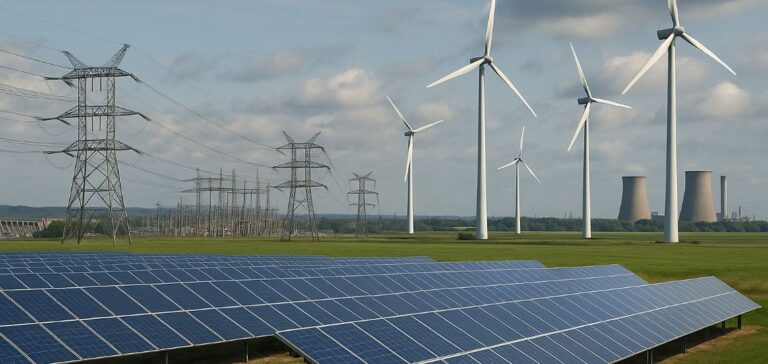Emmanuelle Wargon, President of the French Energy Regulatory Commission (Commission de régulation de l’énergie, CRE), stated that an adjustment to the pace of renewable energy development might be necessary, due to a gap observed between the evolution of electricity supply and the slower progression of demand. The announcement comes as the decree on the Multiannual Energy Programme (Programmation pluriannuelle de l’énergie, PPE), a strategic roadmap for the sector, has been postponed until the end of the summer.
A delayed timeline for energy planning
Prime Minister François Bayrou confirmed the delay earlier this week. The PPE sets out France’s energy consumption and production targets for the next ten years and aligns with the national goal of carbon neutrality by 2050. It also plays a critical role in shaping energy sector investments.
“The CRE has a consistent position: it considers it urgent to publish the PPE to allow the sectors to organise themselves,” Emmanuelle Wargon said, according to AFP on April 30. The regulator’s president emphasised that such visibility is essential both for energy sovereignty and for supporting the increasing electrification of uses.
Revised renewable energy ambitions
The CRE nevertheless believes that certain downward adjustments could be considered, particularly in renewable energy segments, to ensure their effective integration into the power system. “We may need to lower certain targets for electricity supply, because demand has fallen behind,” she stated in an interview with Les Échos.
While reaffirming support for the continued development of renewable energy, Ms Wargon stressed the need to fully mobilise existing capacities, particularly nuclear and hydropower plants. She also referred to “some margin” concerning other renewable sources, suggesting that a flexible pace of expansion may be necessary.
Concerns from industry stakeholders
The professional organisation France Renouvelables, which includes more than 360 industry players, expressed concern about the decree’s delay. It is urging the government to publish the text swiftly to maintain momentum in public tenders and prevent disruption in the development of domestic industrial sectors.
“It is imperative to ensure continuity in the tender process, otherwise investment and employment in our sectors will be compromised,” the organisation stated in a press release. The delay creates uncertainty for developers and manufacturers involved in projects that rely on clear regulatory planning.






















